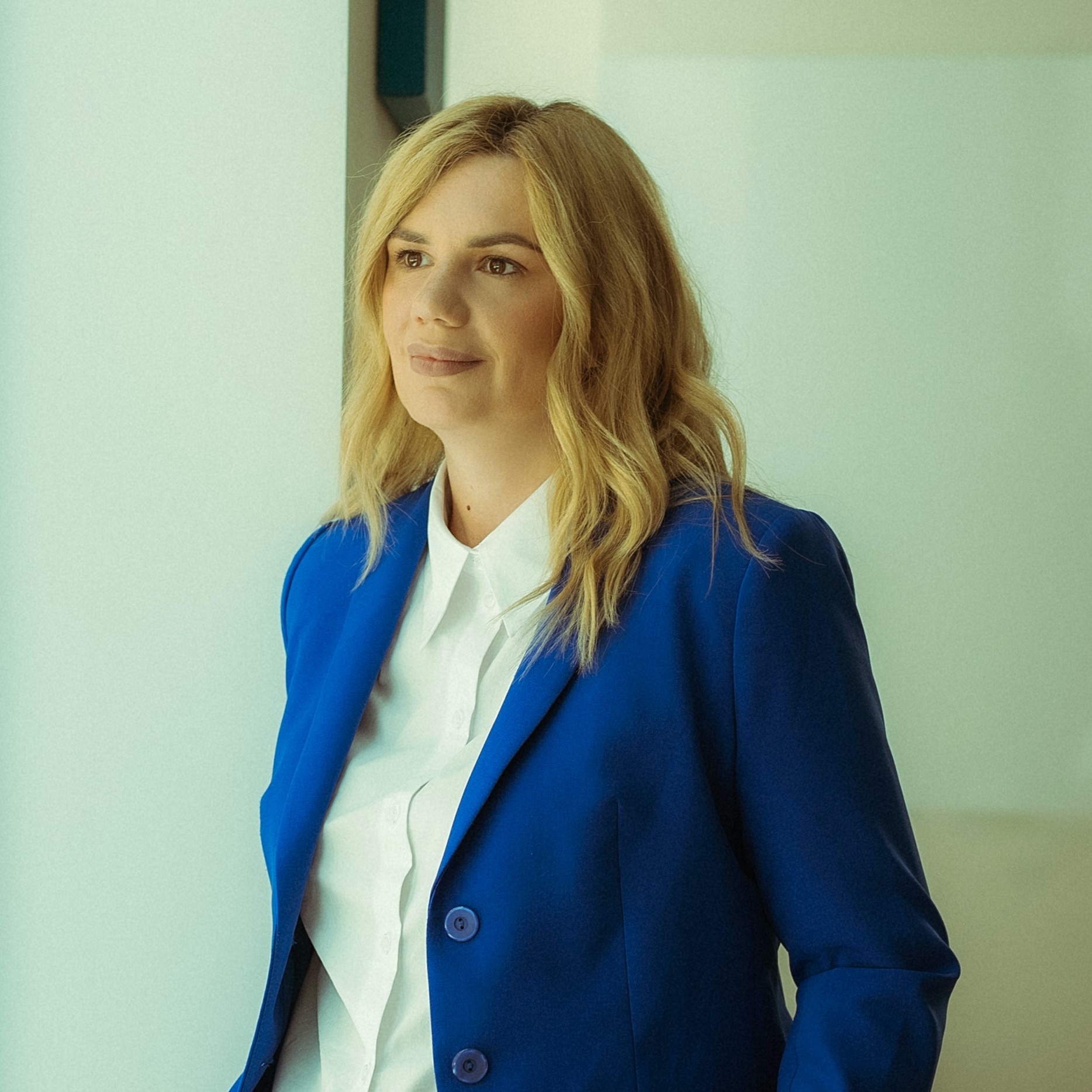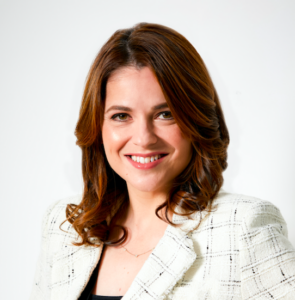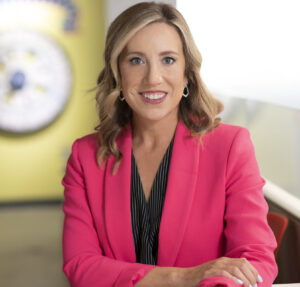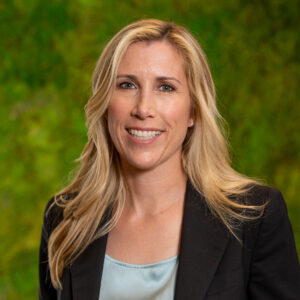6 questions with: Mary Poliakova of Drofa Comms
Mary Poliakova shares a guiding principle in her approach to communication.

Drofa Comms Co-founder and COO Mary Poliakova manages diverse teams, overseeing client relations, content production, and data analysis. With a decade of experience, the former finance journalist has led over 40 international campaigns.
We caught up with Poliakova to get her take on the future of the communications industry,
What book, podcast or other media do you recommend to other comms pros?
As a PR pro, I find that building connections with journalists and exchanging insights with fellow communication specialists is absolutely paramount. Our professional community spans the globe, and while we may not always know each other face-to-face, platforms like “Coffee with a Journalist” bring us closer. In this podcast, editors, reporters, and journalists spill the beans on their PR pet peeves, share favorite books, discuss the future of journalism, and reveal their pitching preferences.
A standout episode for me featured Kate Irwin from Decrypt. She delved into technology, big tech, cryptocurrency, entertainment, and culture, shedding light on why full transparency is a cornerstone in her work and how it impacts her readers.
Now, let’s talk books. Daniel Kahneman’s “Thinking, Fast and Slow” is a game-changer. It’s not just any book; it’s a fundamental exploration of our thinking processes. Widely embraced by business leadership schools, it offers profound insights into decision-making. Our PR agency boasts a vibrant Drofa Comms book club for managers — once a month, we come together to discuss books and PR tools and tackle the challenges that surface in our work. Precisely after immersing myself in Kahneman’s piece, I suggested it for our regular book club discussion, sparking an incredibly fruitful conversation.
What’s your favorite tool you use regularly for work?
When it comes to digital tools, it’s hard to ignore the platforms that came into the spotlight during the pandemic and the surge in remote work. I’m more productive with Miro for seamless collaboration, Asana for task-setting, Google Meet for virtual face-to-face meetings, and Slack for keeping the communication flow smooth with both clients and colleagues.
As for the PR essentials, I’ll share a gem from my extensive journalism experience. Every morning, we gather a news digest on the market to share with colleagues in a group chat. Why? So that everyone’s dialed into the news agenda, ensuring we don’t miss a beat for pitching comments, podcasts, or TV show features. It’s a great tool for any PR pro looking to sync up with journalists in the know.
What excites you most about the future of communications?
What truly excites me is the ongoing evolution of technology, where AI takes the spotlight nowadays. While AI seems like the latest buzzword, it’s essential to recognize that it’s not a recent innovation. AI has been shaping various industries for decades, adapting and growing with each development phase.
As we look ahead, the next 10-15 years promise substantial advancements, particularly in cloud agents and Artificial General Intelligence (AGI). The insights from Yann LeCun, a French computer scientist and Meta’s AI chief, contribute to our understanding of this transformative journey.
In this dynamic landscape, PR specialists are in for an intriguing ride. The horizon foresees the emergence of virtual PR managers and journalists while, I believe, marking a significant shift toward a more ethically integrated approach to collaboration between humans and AI. The symbiosis of human expertise and AI capabilities will redefine the landscape of PR and communications in profound ways.
What communications challenge keeps you up at night?
I’m genuinely concerned about the pervasive impact of social networks on mass consciousness. On the surface, these platforms seem like open and trustworthy channels for swift communication, available to everyone. However, delving deeper reveals a darker side. The vulnerabilities inherent in social media platforms can be manipulated to orchestrate large-scale disinformation campaigns and fake news, and foster other dangerous trends.
One crucial aspect is the mass media function of social networks, where sophisticated algorithms curate personalized newsfeeds. As a significant information source for many, social media functions as a news-producing machine. Yet, this landscape has an algorithmic dilemma. While platforms deploy cutting-edge AI and ML for content moderation and recommendations, the intricate designs can be exploited by bad actors to propagate extremist content or amplify one political viewpoint over another. It’s a tangible challenge that PR and communication professionals confront in today’s landscape.
What’s the biggest challenge you’ve overcome in your career?
The main professional challenge for me was undoubtedly the advent of COVID-19, ushering in a rapid transformation of our familiar traditional corporate landscape. In a relatively short span, we found ourselves steering our business and organization into uncharted waters.
This challenge, though daunting, turned out to be the catalyst for Drofa Comms’ most successful year in 2020. We adapted to remote work seamlessly, fostering increased communication and collaboration through regular synchronized calls. Paradoxically, we observed that despite fewer in-person office meetings, our team’s cohesion remained strong. The realization dawned on us that we could effectively work from anywhere in the world, leading us to embrace a hybrid work format.
In this new dynamic work environment, each team member in our agency has the autonomy to decide when and how often to come to the office. The result? A remarkable blend of dynamism, efficiency, and stability in our work processes. This significant challenge ultimately became a driving force for the positive transformation of our business operations.
What is the best advice you’ve ever gotten?
When I embarked on my journalism career straight out of university, I was fortunate to have a seasoned journalist as my mentor. He served as a constant source of guidance, significantly contributing to my professional growth. The pearls of wisdom he shared with me have stayed with me for two decades, and I’ve made it a point to pass them down to my team members.
One particularly invaluable piece of advice he gave me was that there’s no such thing as “dumb” questions. This counsel has become a guiding principle in my approach to communication. I often use the phrase: “Perhaps my question might seem obvious, but I want to ensure I’ve understood everything correctly.” The fear of asking questions, I’ve learned, is a common pitfall in the interactions between PR professionals, speakers, and journalists.
In my experience, it’s far better to seek clarification multiple times on a complex issue than to risk misunderstandings. Clarity is vital, and taking the time to confirm details ensures a solid grasp of the information from the speaker. This emphasis on clear communication is, indeed, of utmost importance.
Isis Simpson-Mersha is a conference producer/ reporter for Ragan. Follow her on LinkedIn.







